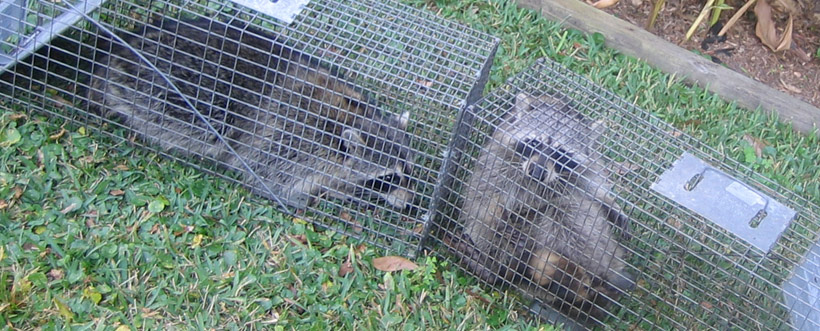Do raccoons eat or travel in
packs?
Raccoons are best
known for their black mask around the eyes, as
well as their intelligence and highly
inquisitive nature. Go beyond that and you will
find home owners who have had encounters with
raccoons on their property tell you of how these
creatures are so adaptable, geniuses at
accessing some of the most secured places and
skilled at foraging for food from different
sources. Raccoons will live in almost any place
that they can adapt to their needs, provided it
has a reliable source of food and water nearby.
They are regular visitors to homes where they
can enjoy food for pets and chicken when you
have not secured it, before turning on the tap
to have a drink and pick a fruit from the garden
on their way to their den.

Information about the life of raccoons,
especially there social life, is complex and
faceted. While raccoons were previously thought
to be largely solitary, mounting evidence seems
to indicate otherwise. Male raccoons in places
with a low population will tend to lead solitary
lives, always walking and hunting on their own.
However, in places where their population is
moderate to high, these males will tend to live
in loose packs of four to six, primarily to
guard their territory against invading males
during mating as well as to better enhance their
protection against predators. Raccoons will also
eat together in large numbers provided there is
sufficient food for these numbers to enjoy
without the outbreak of a fight,. Males can also
be found sitting together when resting or
playing.
However, females have been indicated to be much
more social than their male counterparts. It is
not uncommon to find several female raccoons
living in the same den, hunting and eating
together for majority of the time. However, all
female raccoons love to live on their own when
they have young ones to raise and will normally
break away during this period to raise their new
bones. It is also indicated that some male
raccoons are hostile even to young ones, which
forces the females to raise them separately
until an age when they can defend themselves on
their own.
Young ones will stay in the den until the age of
ten weeks before they can start venturing out to
play around and explore the environment.
However, they will live close to their mother
for up to between thirteen and fourteen months
before they start moving away on their own or to
find new company. With this in mind, we can
conclude that raccoons are loosely social – they
live and travel in packs for convenience, and
the packs are not tightly knit. However, some of
the raccoons will be overly solitary, especially
some males.
Read more: Raccoon
Control, how
to get rid of raccoons, Raccoon
Feces, How
to get raccoons out of the ceiling.
|